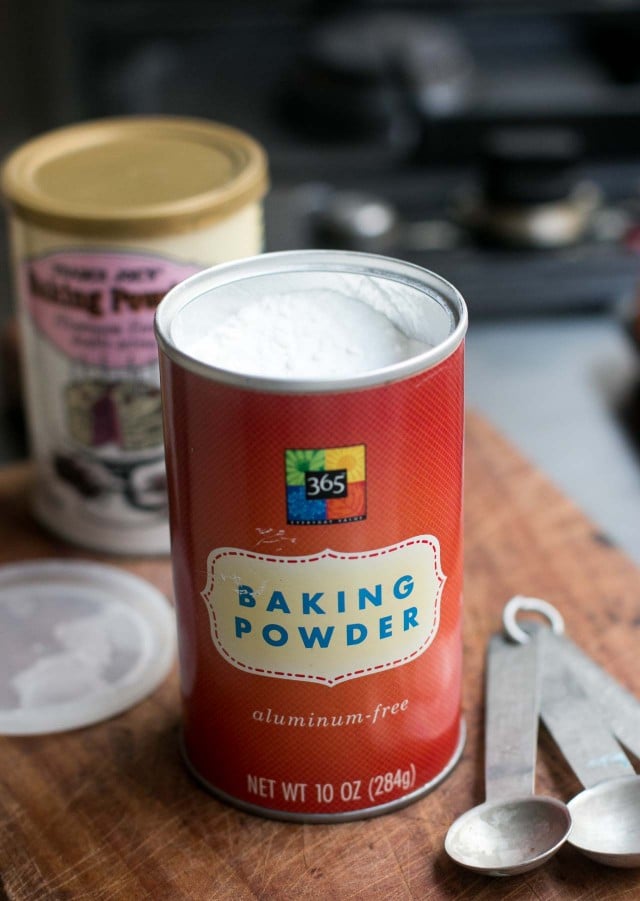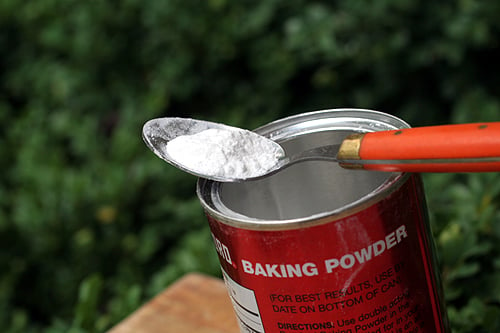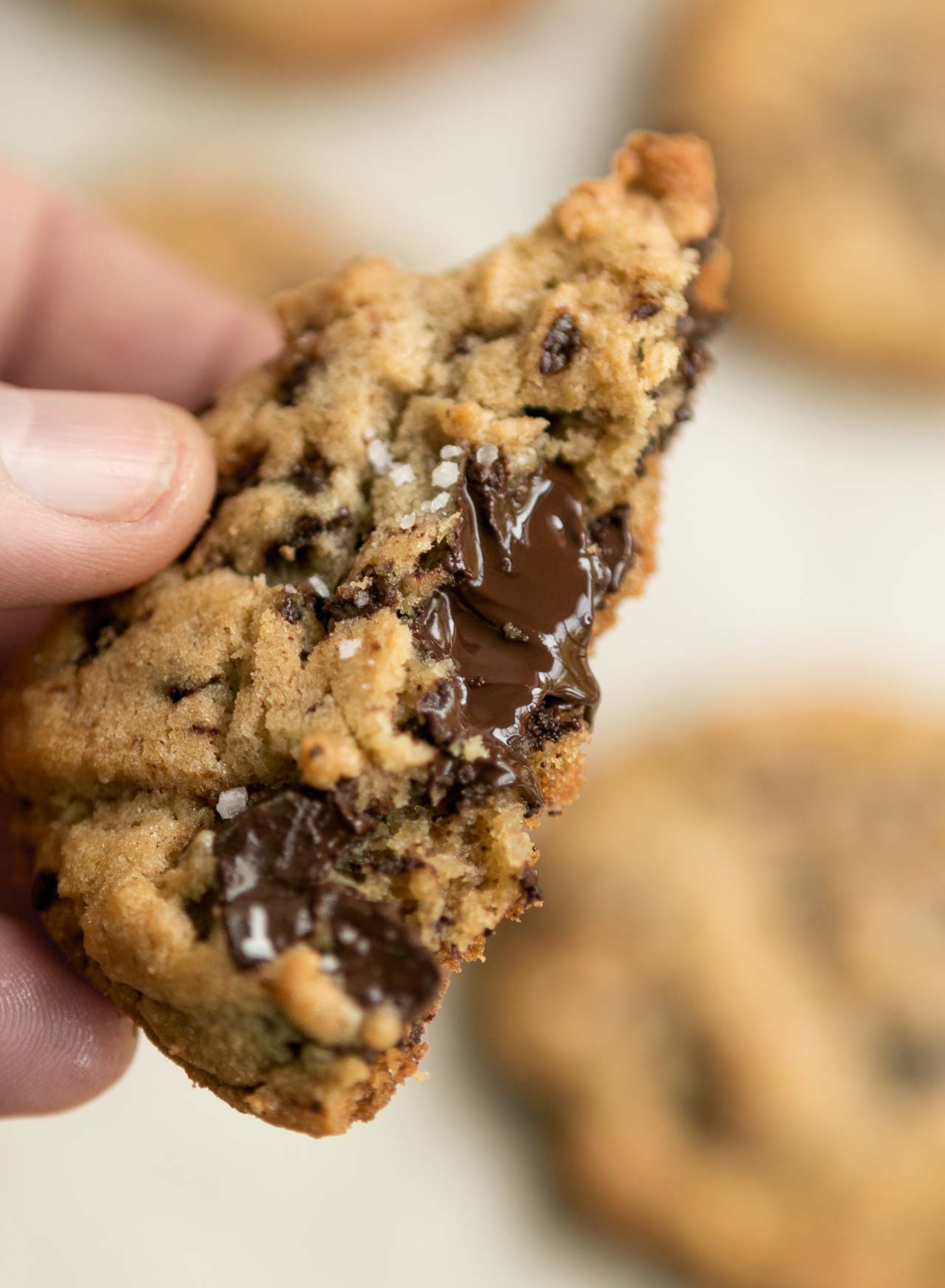Why You Should Use Aluminum-Free Baking Powder

One of the least expensive, and most effective, things you can do to improve the taste of your cakes, quick breads, cookies, and muffins is to switch to aluminum-free baking powder.
Baking powder is a leavening agent, and it’s usually called for in recipes where there are alkaline (as opposed to acidic) ingredients. In actuality, baking soda (sodium bicarbonate) is one of the ingredients in baking powder, which, when moistened, releases carbon dioxide, which causes baked goods to rise.
Even though no definitive correlation has been found regarding health problems arising from using regular baking powder and cooking with non-anondized aluminum pots and pans, I use it for the taste.
If you’ve ever experienced a bitter, “tinny” flavor when biting into a muffin, that’s because of the baking powder used—and often the overuse of it.
When I lived in San Francisco, I simply went up to the manager one day at my local Safeway and said, “Why don’t you carry baking powder without aluminum in it? It’s readily available, and you should carry it.” So he did!
The most popular brand is Rumford, named after Count Rumford, although there are others. (Whole Foods and Trader Joe’s both carry their own brands.) Oddly, it’s made by the same company that makes Clabber Girl baking powder. Baking powders without aluminum cost just a couple of cents more than standard baking powder, and the flavor of your baked goods will improve substantially.
You can also make your own single-acting baking powder: for 1 teaspoon of baking powder, mix 1/2 teaspoon cream of tartar with 1/4 teaspoon of baking soda and 1/4 teaspoon cornstarch. This can be scaled up or down, proportionally. Or you can make a little jar of it, not too much, and use it as needed. If you do make your own baking powder, be sure to pop whatever you’re making right in the oven after it’s mixed as it’ll start to react once you’ve added the liquid to your muffin or quick bread recipe.
Baking powder can lose its oomph and doesn’t last forever. To prevent that, buy the smallest container you can find and store it with the cap firmly in place in a cool, dry place…but not the refrigerator, whose air is too moist. Although I’m always looking for ways to cut down on excess packaging, I find it best not to buy baking powder that’s sold in bulk, as it sometimes is at health food stores, since it loses its vigor quickly when exposed to humidity in the air.
When in doubt if your baking powder is still good, add a teaspoonful to a half cup of boiling water. If it boils vigorously, the baking powder is still good. If nothing happens, chuck it.
More information about baking powder:
Baking Powder vs. Baking Soda (About.com)
Rumford (Aluminum-free baking powder)
Leavens (Cook’s Thesaurus)
Baking soda and Baking powder (Fine Cooking)
All About Baking Powder (Culinate)
Rumford Baking Powder (Amazon)
Baking Powder (Eggbeater)
Trader Joe’s (Most stores carry aluminum-free baking powder)
Baking soda & Baking powder: Why use both? (The Kitchn)
















